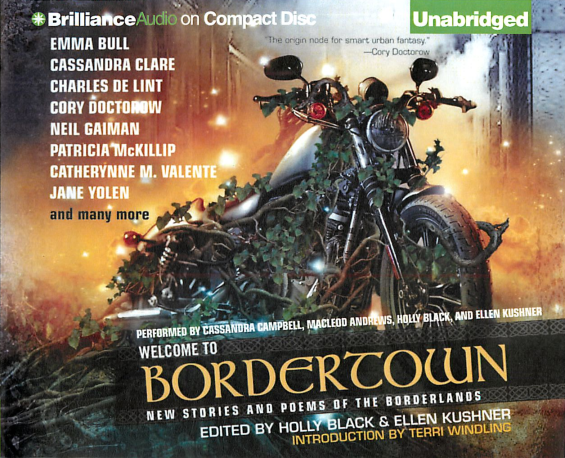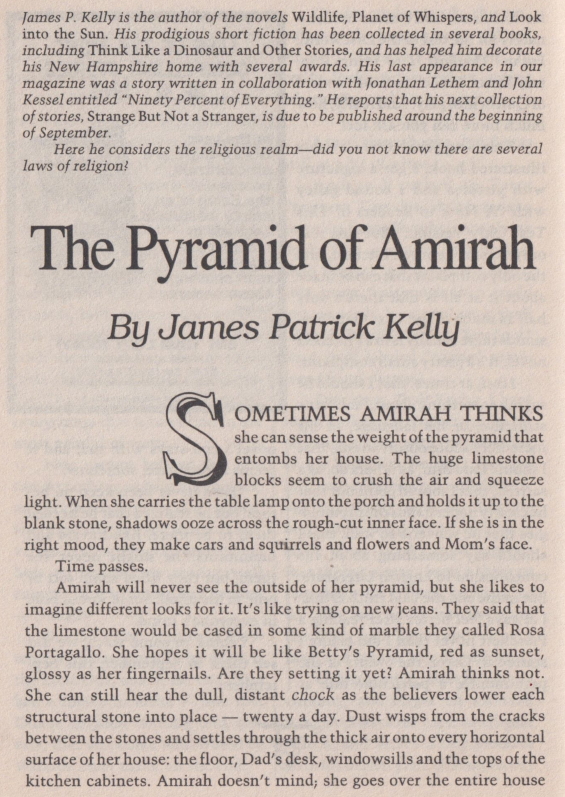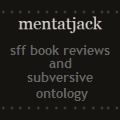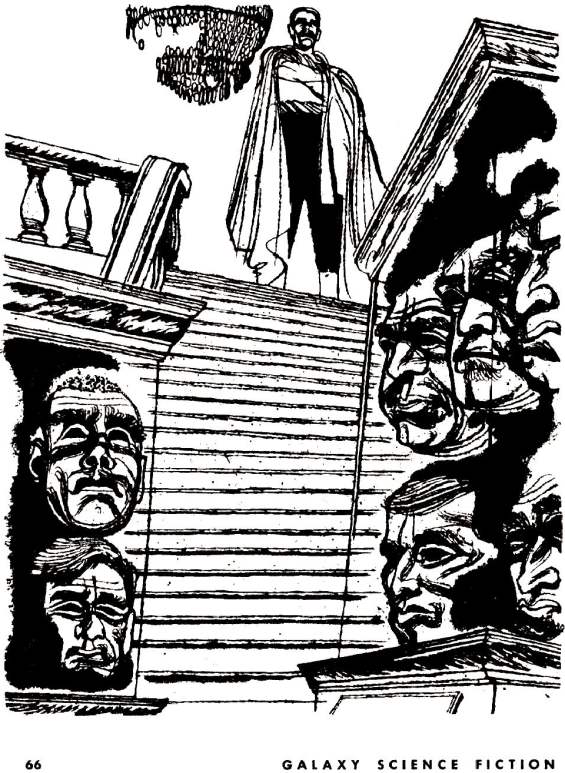
Just crossed the border, literally (it came in the back of a Subaru), here’s a Brilliance Audio audiobook collection that does almost everything right! First, check out the awesome cover art for Welcome To Bordertown:
Next, note the detailed track listings on the back:
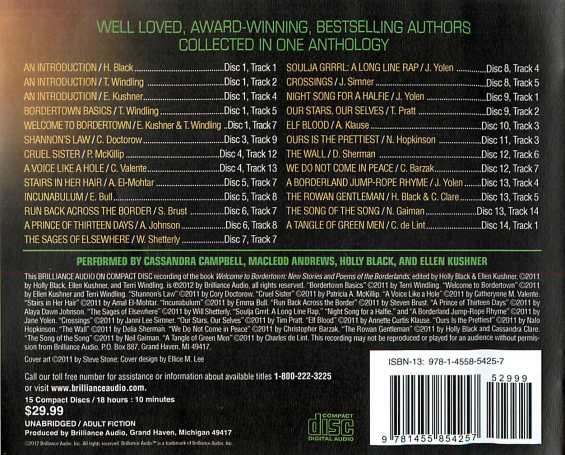
So that’s a look at the outside, inside the discs themselves don’t detail their contents, which is bad, but not fatal (considering you’ve got the back of the audiobook to go by). As to the audio content itself, well I’m looking forward to picking up stories here and there as I research the authors more – that’s usually how I listen to collections these days.
This is the official description:
Bordertown: a city on the Border between the human world and the elfin realm. A place where neither magic nor technology can be counted on, where elf and human kids run away to find themselves. The Way from our world to the Border has been blocked for thirteen long years. . . . Now the Way is open once again — and Bordertown welcomes a new set of seekers and dreamers, misfits and makers, to taste life on the Border.
Here are thirteen interconnected stories, one graphic story, and eight poems — all new work by some of today’s best urban fantasy, fantasy, and slipstream writers
Now I’ve already checked out Neil Gaiman’s entry, which is a poem entitled The Song Of The Song. And I listened to Holly Black reading her own introductory essay. In it she credits the original Bordertown books as ‘creating the urban fantasy subgenre’. Ellen Kushner, Black’s co-editor, reads Terri Windling’s introductory essay, which details the background for the Bordertown series itself. It’s is described as a “Thieves’ World for teens.” Windling also talks about the phenomenon of shared worlds. Also, and this is pretty cool, there’s an additional editorial introduction written, and read, by Ellen Kushner (one that’s not found in the paperbook edition at all).
The only thing missing from this great audiobook edition is the story named Fair Trade by Sara Ryan and Dylan Meconis. But that’s probably because it’s actually a comic and so it would have been very hard to translate into audio (there are two panels of it HERE). And finally, here’s a promo video for the book:
Posted by Jesse Willis
